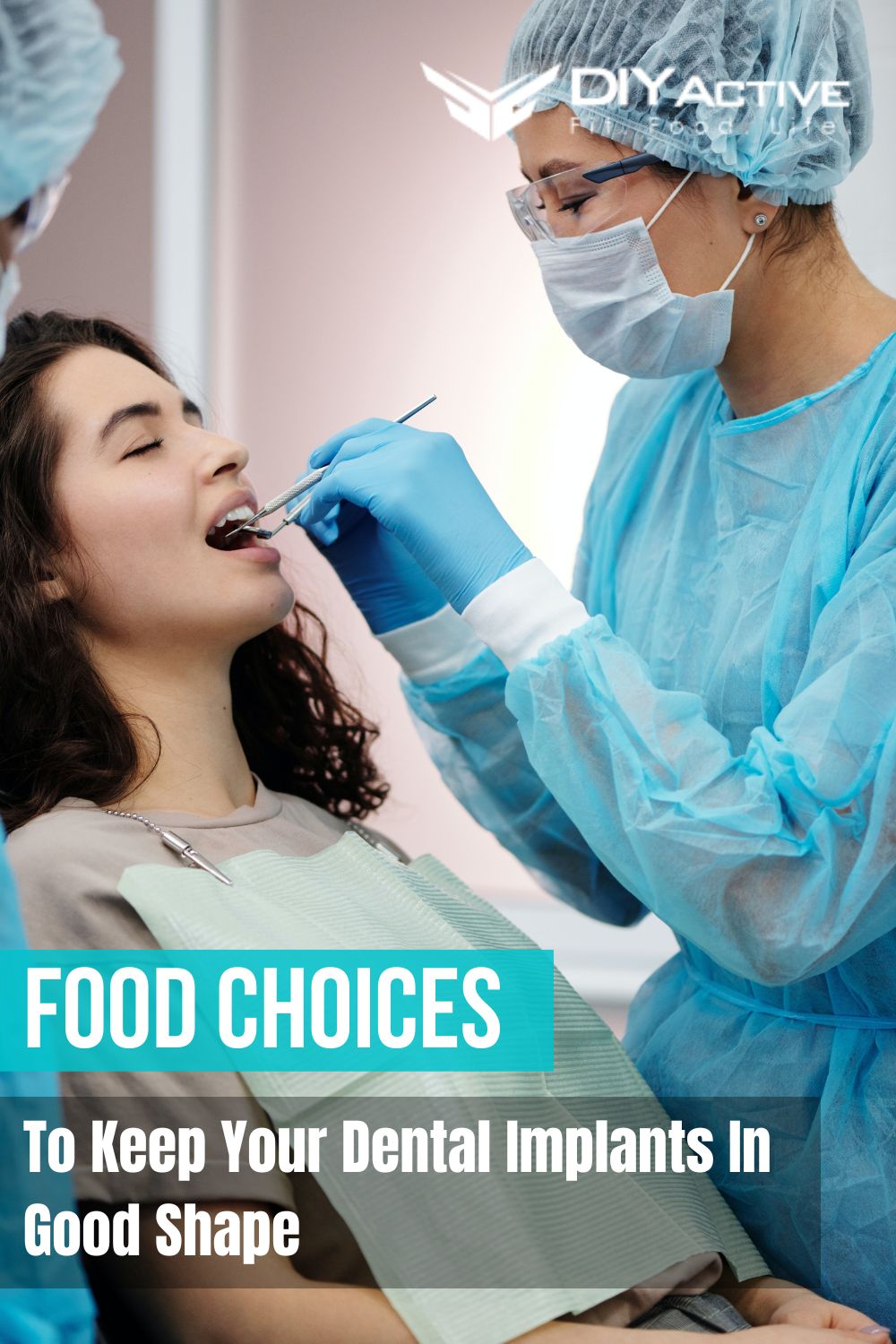Keep Your Dental Implants In Good Shape
Investing in dental implants can significantly improve one’s quality of life. These fixtures offer a durable and aesthetically pleasing solution for missing or damaged teeth. And while the skill of your dental professional plays a pivotal role in the success of your implants, your role in maintaining them is equally important.
How Food Choices Can Help
Aside from regular brushing and flossing, your dietary habits substantially influence their lifespan. Read on for tips on making food choices that help keep your implants in prime condition.
1. Prioritize Soft Foods During Initial Recovery
During the initial recovery phase after your dental implant procedure, cosmetic dentistry experts often recommend a diet designed to minimize stress on your new implants. The focus here is on soft foods that are easy to chew and swallow.
Items like mashed potatoes, applesauce, and scrambled eggs are go-to options because they require minimal effort from your jaw and teeth, thus allowing your implants to heal properly.
Soups and smoothies are also excellent choices, as they’re easy on your dental work and offer a way to incorporate vital nutrients into your diet.
Opting for these softer foods can significantly expedite your recovery process, ensuring that your implants integrate well and last for years.
2. Consider Foods Rich In Calcium And Phosphorus
Once your initial healing phase is over, it’s time to focus on long-term dietary choices supporting your dental implants’ strength and durability.
Calcium and phosphorus are two minerals that should feature prominently in your diet. They’re crucial for building and maintaining strong bones and teeth, directly impacting your dental implants’ stability.
Dairy products like cheese and yogurt are rich in both calcium and phosphorus. Almonds and leafy green vegetables are excellent alternatives if you’re lactose intolerant or prefer plant-based options.
Incorporating these foods into your daily meals aids in maintaining the bone structure that supports your implants, setting the stage for long-term durability and function.
3. Incorporate Vitamins A, C, And D

Vitamins play a crucial role in maintaining dental health. Vitamins A, C, and D are particularly beneficial for dental implants.
Vitamin A, found in foods like carrots and sweet potatoes, aids in the healing process, an essential aspect after any dental procedure. Vitamin C, plentiful in citrus fruits and strawberries, boosts your immune system, reducing the risk of infections that could compromise your implants. Then there’s Vitamin D, which is crucial for calcium absorption in the body. Sources include fatty fish like salmon and fortified cereals.
A balanced intake of these vitamins contributes substantially to your overall health and the longevity of your dental fixtures.
4. Be Mindful Of Acidic Foods And Beverages
Acidity in your diet is a subtle but impactful factor when it comes to oral health, especially in the context of dental implants.
Acidic foods and beverages like citrus fruits, tomatoes, and sodas can gradually erode tooth enamel. This erosion affects your natural teeth and the overall oral environment supporting your implants.
Therefore, consuming acidic items in moderation is advisable, but you can take it a step further by rinsing your mouth with water after consuming such foods or drinks. This simple act helps to neutralize the acid, promoting a more balanced pH level in your mouth.
5. Consume Lean Proteins
Lean proteins like chicken, turkey, and fish serve multiple functions in the maintenance of dental implants. These are rich in amino acids, the building blocks of tissues, which aid in regenerating and repairing gums and other oral structures.
In addition, lean proteins often contain vital minerals like phosphorus, which, as previously mentioned, support strong bones and teeth. Thus, adding them to your meals ensures your body gets the nutrients needed to maintain dental work.
6. Embrace A Balanced Diet
While focusing on specific nutrients like calcium, phosphorus, and essential vitamins is important, the bigger picture shouldn’t be ignored. A varied intake of fruits, vegetables, proteins, and whole grains provides a comprehensive range of nutrients that support your general health and the structures that keep your dental implants stable.
Additionally, a balanced diet contributes to a strong immune system, reducing the risk of infections that could compromise your implants.
7. Stay Hydrated
Staying hydrated goes beyond quenching your thirst; it’s critical to your oral health. Water acts as a natural cleanser, helping flush out food particles and bacteria that can accumulate in your mouth. This is especially crucial when you have dental implants, as cleanliness around the implant site helps prevent potential infections.
Consistent hydration also aids saliva production, which naturally contains enzymes that combat harmful bacteria. So, by making a simple habit of drinking water regularly, you’re taking an effective step toward long-term implant care.
Wrap-Up
Taking care of your dental implants involves more than regular cleaning and check-ups. Your food choices play an essential role in ensuring their longevity. From incorporating nutrient-rich foods to avoiding hard or acidic items, simple dietary adjustments can go a long way. It’s a worthwhile investment in a lifetime of healthy smiles.
Photo by Cedric Fauntleroy